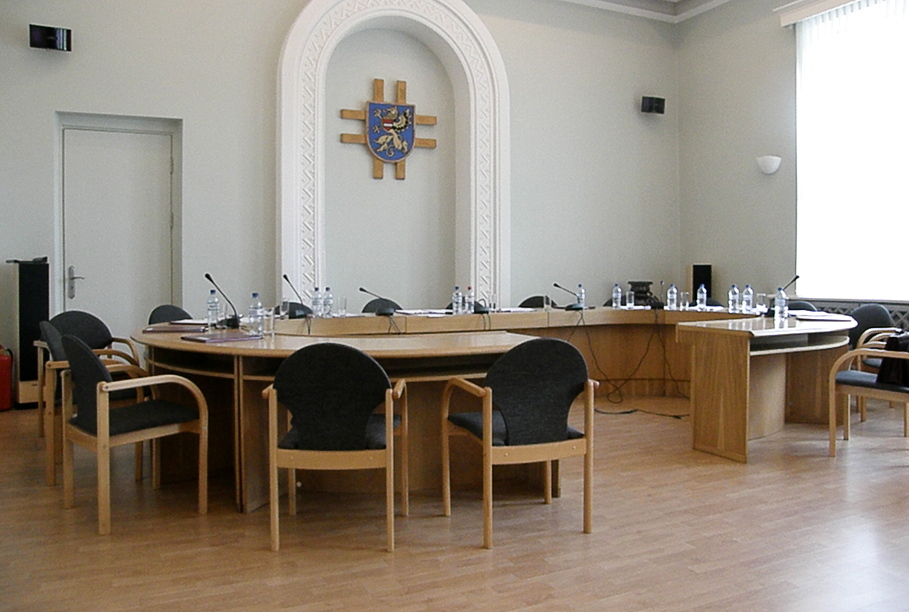As information agency LETA reported Monday, the State Language Center (VVC) has opened a case against the local government in Rēzekne based on a resident’s complaint that its bi-lingual Latvian-Russian newsletter is distributed beyond the bounds of necessity in light of residents’ demand for the public information service. Rēzekne is one of several cities under Harmony-led local governments – also including Ludza and Daugavpils in Latgale, Rīga itself as well as the Kurzeme port of Liepāja (where Harmony shares in power), which issue their official public information in parallel Russian-language editions.
However, the materials often become heavily laden with outright political messages, especially as elections approach. Moreover, when the materials are placed into residents’ personal mailboxes, the law no longer applies to what is defined as “non-public distribution”. On the other hand, materials placed for free pick-up at public sites must have been initiated at the ‘personal request’ of a resident, and in Rēzekne’s case, language inspectors have reason to believe this mode of distribution has gone beyond what the law provides.
Ingrīda Bērziņa of the VVC regional inspection confirmed Tuesday that the Rēzekne town council has removed the newsletters upon the authority’s request. She urged local governments to be reasonable and hoped they would be more forthcoming towards the VVC’s efforts.
“Each segment of society sees the issues that are closest to them personally,” Bērziņa explained to LSM. “Some can’t understand why we’re citing the Rīga welcome sign, others think we’re not being strict enough toward merchants who refuse to learn and use Latvian in the marketplace, but we try to treat these issues in a balanced and equal manner.”
The State Language Law states that local governments provide public information in the official language, except in emergency situations, medical surveys, foreign tourism contexts and other circumscribed cases. The law allows for any other information to be provided in other langauges by demand, however must not be imposed upon residents gratuitously, regional language inspector Antons Kursītis told the daily newspaper Latvijas avīze in June. He suggested that, to avoid unnecessary bias toward one language, public information should be provided in all fifteen of Latvia's minority languages.
The pre-election season has allowed the issue to be aired in the fore, as last week United for Latvia’s heavyweight veteran candidate Jānis Jurkāns scolded Latvian Russian Union candidate Jurijs Zaicevs for in his poor command of Latvian in a televised debate on LTV.
“Are you truly unashamed to present such a politically crippled idea in such poor Latvian?” he asked at Zaicevs’ proposal that Russian be granted official status. “You show all of Latvia that a young able-minded person like you can’t be bothered to learn Latvian and show basic respect toward the state. And nothing will ever change here, you can introduce the-devil-knows-how-many languages, but excuse the vulgarity, if there isn’t a proper attitude toward the state,” the former foreign minister chastised his rival.
Nevertheless, a recent SKDS poll of Riga residents showed respondents expressing a high level of mutual tolerance between Latvian- and Russian-language speakers, moreover also high levels of loyalty to both homeland and hometown.
The survey, commissioned by the City Council’s Consultative Council on Social Integration Affairs, also revealed a troubling emergent trend of expressed intolerance towards outsiders and other racial and ethnic minority groups, including low-income groups and the physically challenged. Asked where they would wish to see members of socially disadvantaged groups amongst city residents, 40% of respondents said they shouldn’t even be allowed into the country, while 39% would prefer to see them only as visiting tourists.




























